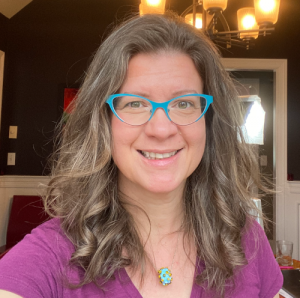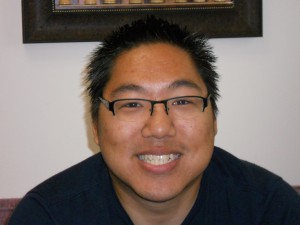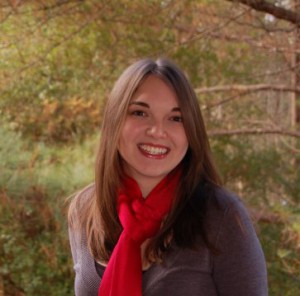The manipulation of objects is dependent on several factors such as the object’s shape and conceptual knowledge about its use. There are different types of grasps that are made when an object is picked up as opposed to when the object is used (ex: the grasps when a cell phone is picked up is distinct from the grasp made when a cell phone is used to text). These grasps are called volumetric grasps (used to pick an object up) and functional grasps (for use of the object). There has been much debate regarding whether volumetric grasps stem from learned representations of the objects or whether they are made from an on the fly computation by the motor system. My research uses novel objects that people have never had experience grasping in order to approach this question. Ultimately, we will manipulate the amount and type of experience participants receive with these novel objects (visual, physical grasping of the objects, verbal description) in conjunction with fMRI in order to ascertain whether the dorsal or ventral streams are activated for motor representations that have been learned.
Steph is now touring the world with her husband Tony. Follow their travels here:
My work focuses on understanding the behavioral and neural correlates of face and object recognition. I work with physicists to optimize sequencing parameters for functional neuroimaging using Vanderbilt’s 7-Tesla scanner and focusing on the ventral temporal cortex. Using high resolution fMRI at 7T, my colleagues and I have characterized responses to faces, non-face object of expertise, and common objects in subjects with varied expertise. We have shown that neural selectivity and proportional representation of objects in FFA increased with expertise, including in face-selective voxels within the 25 mm2 peak of face selectivity. FFA responses to objects were restricted to a 200mm2 area centered on the FFA peak. In more recent studies at 7T and 3T, I have asked questions about the effects of expertise during conditions of divided attention. Our data suggest unique response properties in the posterior and anterior regions of right and left FFA. With colleagues, I developed the Vanderbilt Expertise Test, which provides a reliable and valid measure of object recognition abilities, and can measure both domain-general skills as well as domain-specific expertise, both of which we’ve shown to depend on sex.
http://www.vanderbilt.edu/psychological_sciences/bio/rankin-mcgugin
Kao Chua received an honorable mention on his NSF graduate fellowship application
I received my bachelors in psychology from the University of Alabama Birmingham. After spending a little over a year as Isabel Gauthier’s research assistant, I became the Coordinator for the Perceptual Expertise Network. Now I am also Peer Review Coordinator of Journal of Experimental Psychology: Human Perception and Performance.
 I have the privilege to head the Object Perception Lab in the Psychology Department at Vanderbilt University.
I have the privilege to head the Object Perception Lab in the Psychology Department at Vanderbilt University.
I think of myself as a cognitive neuroscientist – I am interested in how we perceive, recognize and categorize objects and shapes (such as faces, letters, cars and novel objects such as Greebles). A lot of the work in our lab revolves around perceptual expertise – defined as becoming very good at making perceptual judgments that started off as being very difficult – and investigates the behavioral and neural changes that occur during its acquisition. Many of our studies investigate individual differences (in vision, haptics and even auditory high-level skills). I got my BA at Université du Québec à Montréal, my PhD at Yale (working with Michael J. Tarr, now at CMU) and did concurrent post docs with John Gore at Yale (now at Vanderbilt) and Nancy Kanwisher at MIT.
My research philosophy includes the belief that dividing the mind and brain into multiple systems to account for differences observed between various categories or tasks is often merely a way of restating the results rather than an explanation. Our work is therefore part of a long tradition influenced by psychologists who prefer to focus on how these differences arise. I also believe in collaboration with people who see the world differently and/or have access to different tools than I do, because ultimately, I do not like my work to be constrained by techniques.
http://www.vanderbilt.edu/psychological_sciences/bio/isabel-gauthier



